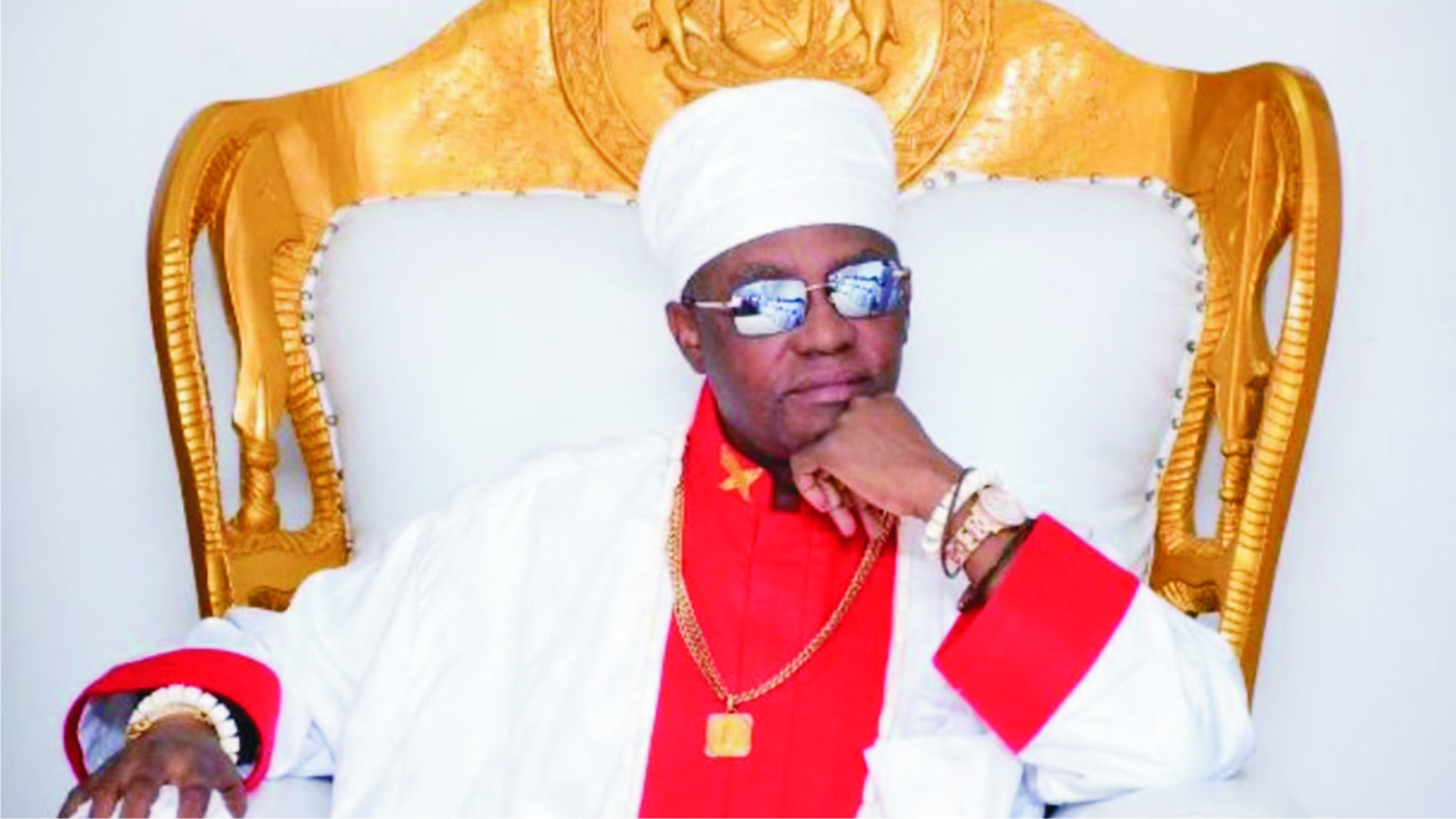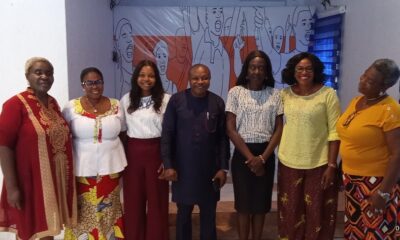News
IMF Unveils New Corruption Policy
The International Monetary Fund will systematically address corruption and its impact on economic growth with all its member countries under new guidelines launched, yesterday.
The stricter new policy also aims to tackle how rich countries contribute to corruption in the developing world by failing to prevent bribery and money laundering or by allowing anonymous corporate ownership.
“We know that corruption hurts the poor, hinders economic opportunity and social mobility, undermines trust in institutions and causes social cohesion to unravel,” IMF Managing Director Christine Lagarde said in a statement.
“We have now adopted a framework for enhanced engagement on governance and corruption that aims for a more systematic, evenhanded, effective and candid engagement with member countries.”
Corruption and poor governance sap economic growth and exacerbate inequality, according to the IMF, and the new policy framework attempts to ensure the institution will hold all members to the same standards something the fund said it had not always done.
The new policy comes as Ukrainian authorities work to implement stringent new anti-corruption reforms at the behest of the IMF, which has held up the latest instalment of a $17.5 billion aid package. The revised good governance guidelines, which take effect on July 1, follow a recent review of the IMF’s 20-year-old policy framework which concluded the fund had sometimes employed euphemisms when discussing corruption in member states, leaving local officials unclear about IMF concerns. – ‘More intrusive’ – And IMF analysis sometimes failed to apply the same standards evenly to all members.
Under the new guidelines approved by the IMF board on April 6, the fund will discuss good governance concerns in all annual economic reviews of member countries.
IMF officials however say they do not expect the policy will lead to more stringent conditions on loans, which go to a minority of the fund’s 189 members and which already include anti-corruption provisions.
The fund also will rely on the findings of outside transparency campaigners who have criticized the existence of tax and corporate havens in advanced economies as a conduit for illicit financial flows to and from poorer countries.
However, the IMF will not investigate specific instances of corruption. Rather, it will focus on the strength of key economic institutions: fiscal and central bank governance, market regulation, the rule of law and policies on money laundering and countering terrorism financing.
IMF analysis suggests falling 25 notches on a corruption index could shave as much as 0.5 percentage points off a country’s annual growth, amounting to tremendous economic losses over multiple years.
In unveiling the new policy yesterday at the close of the IMF-World Bank spring meetings, Lagarde said the fund’s board supported a “more intrusive” approach to member state evaluations.
“Because it is a macroeconomic issue, the IMF is really perfectly legitimate in acting, especially when we have a program in a country,” she said.
News
RSG Moves To Diversify Rivers Economy …As Farmers, Others Laud Ibas Over Implementation Of RAAMP

The Rivers State Government has restated its readiness to diversify the economy of the state from oil to Agriculture.
This is as farmers and other stakeholders have commended the Sole Administrator of Rivers State, Vice Admiral Ibok-Ete Ibas (Retd) for approving the implementation of Rural Access and Agricultural Marketing project (RAAMP) in the state.
Permanent Secretary, Rivers State Ministry of Agriculture, Mr Maurice Ogolo, said this during a meeting on implementation of RAAMP in Ikwerre, Eleme and Ogba Egbema Ndoni Local Government Areas.
Ogolo said the programme would create an agricultural industrial hub in the 23 local government areas, and urged the people to embrace the project.
Meanwhile, rural farmers and other stakeholders in the State have lauded Ibas for approving the implementation of RAAMP in the State.
RAAMP is a world bank program with support from the International Development Association ( IDA), the French Development Agency and the Federal Government of Nigeria.
According to a statement made available to newsmen, the programme aims to strengthen the institutional and financial base for sustainable management of state and rural networks, fostering historic development to enhance food security, creating access in rural communities to boost agricultural processes through creation of durable access roads and agro logistics centres/hub.
Tide source confirms that the program has been in operation since 2020 with 19 states benefitting.
The benefitting states are Kano, Katsina, Sokoto, Kebbi and Bauchi.
Other beneficiaries are Plateau, Kwarra, Ondo, Niger, Gombe, Anambra, Cross River, Taraba and Benue states.
The source said that 12 new states including Rivers State recently completed their requirements for inclusion into the RAAMP 3.
Speaking at the stakeholders’ meeting at Isiokpo, Nchia and Omoku, headquarters of Ikwerre, Eleme and Ogba/Egbema/Ndoni local government areas respectively, a cross section of farmers described the programme as timely as it would boost food production as well as create markets for agricultural produce.
At Eleme, HRH Emere J D Nkpe warned against politicising the project.
The people also complained against incessant destruction of crops by herdsmen and called for it to be checked.
Also speaking at Omoku headquarters of Ogba Egbema Ndoni Local Government Area,Eze Allison Dan and Barrister Lola Nwaribe commendation the government for the program but warned against it going the way of other programmes.
For Barrister Nwaribe Women in the area needs assistance to break free from subsistence agriculture
Speaking at the three ocal government areas Ogolo said Rear Admiral Ibok Ete Ibas rtd needs to be commended for approving the implementation of the program in the state.
Ogolo said the program is aims at diversifying Rivers economy from oil to Agriculture.
He said the program will also enable farmers to move from subsistence farming to commercial agriculture, adding that access roads will not only be created to farms but markets will be built for farmers to sell their produce.
He listed other benefits to include creation of employment for the youths and helping small traders to boost sales.
Also speaking the state RAAMP Coordinator,Mr Joshua Kpakol said the “the essence of this project is to provide rural access roads and improve agricultural marketing systems across the 23 Local Government Areas of the state”
Kpakol said the project is divided into three components which are improvement of Rural Access and Trading Infrastructure, Sector Reform,Asset management and Agro logistics performance Enhancement and Institutional Development, Project Management and Risk Mitigation.
He urged farmers and traders to embrace the project as it would go along way in changing their fortunes.
At Ikwerre and Eleme local government areas respectively, the sole administrators of the two councils Hon Isaiah Christian and Dr Gloria Obo Dibiah said the councils will work towards the success of the program.
They commended President Bola Ahmed Tinubu and the Sole Administrator of Rivers state for ensuring that their respective councils benefits from the programme.
John Bibor
News
Defamation: Court Grants Natasha N50m Bail

The FCT High Court in Abuja, yesterday, granted the suspended Senator representing Kogi Central Senatorial District, Natasha Akpoti-Uduaghan, bail in the sum of N50 million and one surety who must be a person of reasonable integrity resident in F.C.T Abuja and owns a landed property within the Abuja Municipal Area Council.
The trial judge, Justice Chizoba Orji, made the declaration in a ruling after taking arguments for and against the bail application from the parties in the suit.
The Attorney General of the Federation, in a three-count criminal charge marked CR/297/25, accused Akpoti-Uduaghan, the sole defendant, of making defamatory statements against the Senate President, Godswill Akpabio, during a live television broadcast.
The charge, which lists Akpabio and the former Kogi State Governor, Yahaya Bello, as nominal complainants, alleged that Akpoti-Uduaghan claimed Bello had conspired with Akpabio to orchestrate her assassination outside Abuja, disguising it as a mob or local attack.
According to the Federal Government, these allegations were made during a live broadcast on Channels Television’s Politics Today on April 3, 2025.
The Federal Government claimed that Akpoti-Uduaghan knowingly or recklessly made these imputations, fully aware that they could harm the reputation of the individuals involved.
The charge alleged that she said, “Let’s ask the Senate President, why in the first instance did he withdraw my security, if not to make me vulnerable to attacks? He then emphasised that I should be killed, but I should be killed in Kogi. What is important to me is to stay alive, because dead men tell no tales. Who is going to get justice for me?”
The charge also cites her statements during the programme as saying, “That you, Senator Natasha Akpoti-Uduaghan, on or about the 3rd day of April 2025, during the same Politics Today programme on Channels Television in Abuja, Federal Capital Territory, made the following imputation concerning Yahaya Adoza Bello, former Governor of Kogi State.
“It was part of the meeting, the discussions that Akpabio had with Yahaya Bello that night, to eliminate me. When he met with him, he then emphasised that I should be killed, but I should be killed in Kogi. You knew or had reason to believe that such imputations would harm the reputation of Yahaya Adoza Bello, former Governor of Kogi State.”
The senator is also accused of making defamatory statements about Akpabio during a telephone conversation with Sandra C. Duru in Abuja on March 27, 2025.
The alleged statement is as follows, “That girl that was killed, what’s her name, umm…. Imoren Iniubong, her organs were actually used for the wife, because the wife was really ill… when they killed the girl, and her organs were used for the wife.”
The Federal Government contends that Senator Akpoti-Uduaghan knew or ought to have known that this claim would harm the reputation of Senator Godswill Akpabio.
Meanwhile, the Senate President, Bello, and four others have been listed as witnesses in the trial.
The arraignment of Akpoti-Uduaghan was initially scheduled for June 3, 2025. However, the strike action of the Judiciary Staff Union of Nigeria stalled the arraignment.
Meanwhile, a similar matter is also lodged before Justice Muhammed Umar, of the Federal High Court in Abuja.
While Senator Akpoti-Uduaghan was slated for arraignment before Justice Umar, she, however, did not appear for the arraignment since the prosecution had not been able to serve her as stated in court.
The prosecution, however, applied for a bench warrant to be issued on the suspended senator, which the court refused.
At the commencement of the hearing, the counsel to the Attorney General of the Federation, David Kaswe, told the Court that the matter is for arraignment of the defendant (Senator Akpoti-Uduaghan).
Natasha was docked, and the three-count read to her. She pleaded not guilty to all the charges.
Akpoti-Uduaghan’s legal team, led by Professor Roland Otaru (SAN), afterwards informed the Court that a bail application filed on May 27 has been submitted to the court.
Kaswe, however, informed the court that the Federal Government is opposing the bail application and called the attention of the judge to a counter-affidavit filed before the court to this effect.
He proceeded to ask the court to remand the Kogi Senator in prison as she poses a flight risk.
He said, “In view of the charge, we will be asking for a remand in a correctional facility.
The defence counsel, however, interjected, stating, “We already filed an application for bail. We are in a court of law for Justice. We have a motion on Notice dated May 27, 2025. You represent the Ministry of Justice, not the Ministry of Injustice.
“If your lordship graciously will, we urge your lordship to grant the bail application. This is a case where your lordship has the discretion to grant bail, and nobody can query it, not even the president can query it. Even on self-recognition because it is not a case of murder.”
Referencing the Administration of Criminal Justice Act, Otaru added that anybody who is charged with a criminal offence shall be presumed innocent until proven guilty. “And she pleaded not guilty. As she is standing there, she is innocent until proven otherwise,” he added.
Justice Chizoba Orji, after listening to both arguments, however, granted Natasha bail in the sum of N50 million, with one surety who must be a person of reasonable integrity resident in F.C.T Abuja and owns a landed property within the Abuja Municipal Area Council.
News
Benin Monarch Receives 119 Stolen Artefacts From Netherlands

Oba of Benin, Ewuare II, has received 119 stolen artefacts from the Netherlands.
The Oba who disclosed this on Wednesday in Benin, the Edo State capital, said plans by some international cartel to re-loot the artefacts were thwarted after he prayed to God and the ancestors.
He said, “I thank President Bola Tinubu for supporting and committing to the efforts former President Buhari put in place to ensure the artifacts are not re-looted because there were groups in this country believed to be an international cartel that had all sorts of conspiracy to re-loot our artifacts.
“They stole and burnt our Kingdom. They killed my people and tried to kill their spirit and their morale. Today, the boldness, courage, and bravery of the Benin people are still there. Events of 1897 reduced that to a significant level that Sometimes when I see my people, they are afraid of the unknown.
“The return of these objects has reawakened the courage we had in our people. We do not want modern-day politics and partisan politics to diminish the courage of our people.
“The Director General of the National Commission for Museums and Monuments has been doing wonderful work. His predecessor was part of the conspiracy to re-loot our artefacts. We had a running battle in this hall.
“I addressed my Chiefs in Benin language, and I said these artefacts belong to my ancestors, and I will not sit on the ancient throne and watch the artefacts re-looted. They would rather remain where they are than be re-looted. I thank the government of the Netherlands for working with us. This is part of the efforts to reawaken the morale and spirit of my people.
“After 1897, the kingdom was reduced. There was a government in this state that wanted to reduce the kingdom more and scatter it. I am angry when I speak about it. Why would anybody want to scatter the kingdom.
“The youths were courageous like the youths of those days. They were not afraid of anybody. I vowed that it would not happen. Not in my reign. Not while I am sitting on this throne. God heard my prayers. My ancestors heard my prayers. This throne is not partisan, but I should support what is good for my people.
“I urge the youths to be tough and strong in the face of adversity. This is not for anybody else. It is for my ancestors.”
The Benin Monarch further prayed for the return of more artefacts.
The NCMM DG, Olugbile Holloway, said the commission and the Benin Royal Palace were working hard to ensure more artefacts were returned.
Edo State Governor, Monday Okpebholo, who was represented by the Secretary to State Government, Barr. Musa Ikhilor said his administration would continue to build necessary infrastructure to preserve the returned artefacts as well as collaborate with the Federal Government to improve the storage system for the artefacts.
The General Director of the Wereld Museum, Marieke Van Bommel, said, “The artefacts are looted, and we have a policy in the Netherlands to bring them back. We are bringing back 119 artefacts. We don’t have more. These are the collections in the Netherlands. There are more collections in Europe, but that is not up to us. They have been with us for over 100 years.”
-
Sports17 hours ago
Ekiti Honour Contingents On National AGILE Games’ Feats
-

 Nation15 hours ago
Nation15 hours agoNGOs Urge RSG To Prioritise Child Protection Funding
-
Politics16 hours ago
LG Autonomy: ICPC Hails S’Court Decision, Decries Councils’ Funds Misuse
-

 Editorial15 hours ago
Editorial15 hours agoResponding To Herders’ Threat In Rivers
-
News16 hours ago
Tinubu Inaugurates Institute Of Vocational Training, 100 CNG Buses In Kaduna
-
Business17 hours ago
PINL Initiatives, Operational Etiquette Excites Bayelsa Stakeholders
-
Business15 hours ago
MWUN Backs Nigeria’s Bid For IMO’s Category C Seat
-
Politics16 hours ago
Members’ Ego Responsible For PDP Crisis, Not About Atiku Alone -Gov Lawal

